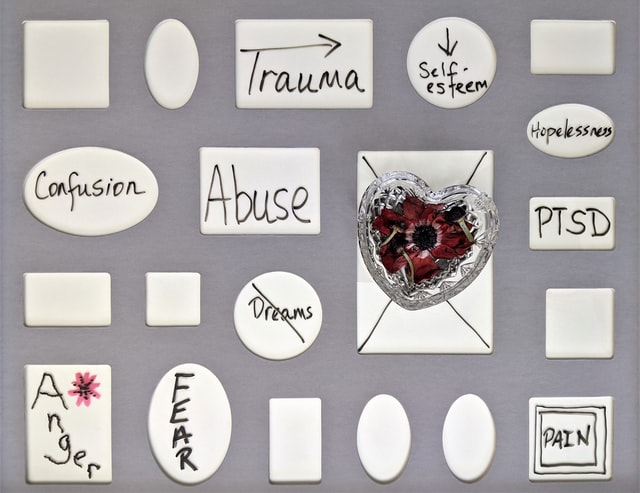The Effects of Trauma: The Psychological Aspects and What to do After

Trauma is any negative event that leaves a huge impact on the person or people suffering from it. This can be abuse, a bad accident, a natural disaster, or some other event that dramatically changes the life of an individual. The effects of trauma can be devastating.
Not everyone is affected by trauma in the same way. In fact, women who have experienced trauma are at higher risk of developing a mental health condition, such as anxiety, depression, or post-traumatic stress disorder (PTSD). Here are six of the most common conditions that occur both immediately and long after traumatic events.
Anxiety Disorders
Anxiety is a normal response to stressful situations that subside once the stressful situation is over. It becomes a disorder when anxiety occurs beyond stressful situations and starts to affect day to day life. The four major types of anxiety disorders are:
- Generalized Anxiety Disorder (GAD) is excessive worrying about everyday issues, even when there’s no reason to worry.
- Panic Disorder is excessive panic attacks.
- Social Phobia is excessive fear of everyday social situations.
- Specific Phobia is an irrational fear of something that poses little to no danger.
Anxiety disorders can be treated with counseling, medication, or a combination of both.
Borderline Personality Disorder (BPD)
BPD is a serious disorder that causes unpredictable and unstable moods, affecting a person’s self-image and relationships. Symptoms include:
- Aggression
- Anger
- Anxiety
- Depression
- Drug and alcohol abuse
- Impulsive and dangerous behaviors
Talk therapy seems to be the most effective treatment for BPD. Dialectical behavioral therapy (DBT), specifically, helps those with BPD regain control of their emotions and engage in healthier behaviors.
Depressive Disorders
Just like everyone can experience anxiety, everyone can also experience extreme sadness, especially after a traumatic event. However, clinical depression is defined as having extreme sad, hopeless, and empty feelings that keep you from performing your regular activities for at least two weeks. There are also many different types of depression.
- Major Depressive Disorder (MDD) is the type most associated with the symptoms listed above.
- Manic Depression/Bipolar Depression is characterized by periods of manic highs followed by symptoms characteristic of depression.
- Postpartum Depression is a major depressive episode that affects many women after they’ve given birth.
- Psychotic Depression is depressive symptoms combined with delusions or hallucinations.
- Seasonal Affective Disorder (SAD) is depression that occurs during the winter months.
Depressive disorders can also be treated with a combination of medications and therapy.
Eating Disorders
Eating disorders are characterized by abnormal eating patterns. Trauma can lead to an eating disorder, but so can genetics and certain personality traits. The five most common types of eating disorders are:
- Anorexia nervosa is characterized by severely restricting one’s diet because they believe they’re overweight.
- Avoidant/restrictive food intake disorder (ARFID) is characterized by a lack of interest in eating.
- Binge eating disorder is characterized by impulsively eating a large amount of food in a short period of time.
- Bulimia nervosa is characterized by binge eating and then later purging.
- Pica is characterized by craving and eating non-food items.
Post-Traumatic Stress Disorder (PTSD)
The majority of people experience negative emotions after a traumatic event, but these symptoms disappear as time goes on. However, those suffering from PTSD continue to have these feelings much longer after a traumatic event. Intrusive thoughts associated with the event are characteristic of PTSD. Other symptoms include:
- Anxiety and depression
- Being easily startled
- Avoid certain people, places, and situations
- Nervous, jittery, and tense feelings
- Numbness or the absence of feelings
PTSD can start immediately after a traumatic event, or sometime after. Effective treatments include medication, cognitive behavioral therapy (CBT), eye movement desensitization and reprocessing (EMDR) therapy, and prolonged exposure therapy.
Substance Use Disorder (SUD)
Alcohol and certain drugs are used to cope with trauma, and some people can become addicted to the substances. The trauma itself can cause an individual to turn to these substances, while genetics play a role in becoming addicted to these substances. So not everyone who turns to substances will become addicted. The eight most frequently abused substances are:
- Alcohol
- Cocaine
- Hallucinogens
- Inhalants
- Marijuana
- Methamphetamines
- Opiates
- Prescription medications
Bottom Line
Victims of trauma don’t have to deal with it alone. Various types of medications and therapies (as best determined by your doctor) can help heal the negative emotions that come with trauma.
Those who have been sexually abuse should seek help from a lawyer that specializes in sexual abuse, such as https://www.rosenfeldinjurylawyers.com/sexual-abuse.html. They should also seek help from other medical professionals, such as a doctor and a therapist.

